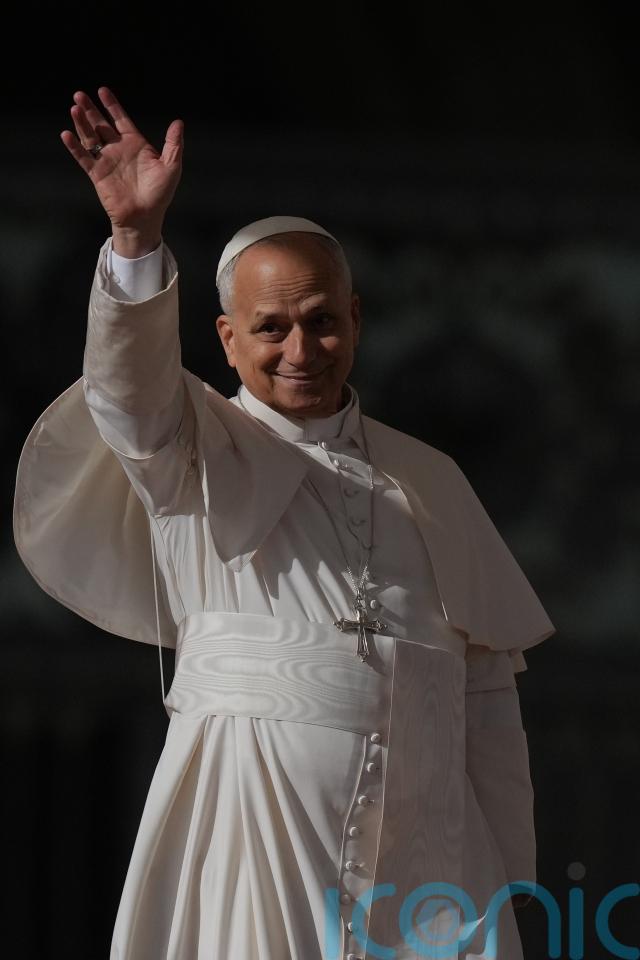
Pope Leo XIV is embarking on his first foreign trip, a pilgrimage to Turkey and Lebanon.
Leo is fulfilling a trip Pope Francis planned to make, to mark an important anniversary with the Orthodox church in Turkey.
In Lebanon, he will try to boost a long-suffering Christian community as well as Lebanese of all faiths who are still demanding justice over the 2020 Beirut port blast.
Leo, who spent 12 years as superior of his Augustinian religious order and two decades as a missionary in Peru, says he loves to travel.
“He is still driving coverage here (in the US) because of his engagement with one of the most important issues we’re facing, which is migration,” said Kim Daniels, director of the Initiative on Catholic Social Thought and Public Life at Georgetown University.
“I think this trip will drive attention again to the peripheries and to the vulnerable.”
Significantly, Leo plans to deliver all his remarks in Turkey in English and English and French in Lebanon, casting aside the Italian lingua franca of the Vatican in favour of languages that are more widely understood.
The main impetus for travelling to Turkey, the first stop in the trip, is to mark the 1,700th anniversary of the Council of Nicaea, Christianity’s first ecumenical council.

Leo will pray with Ecumenical Patriarch Bartholomew, spiritual leader of the world’s Orthodox Christians, at the site of the 325 AD gathering – today’s Iznik – and sign a joint declaration in a visible sign of Christian unity.
Eastern and Western churches were united until the Great Schism of 1054, a divide precipitated largely by disagreements over the primacy of the pope.
The visit will also offer Leo several occasions to speak about regional tensions overall, Catholic-Muslim relations and Christians’ dwindling presence in the Middle East.
Clergy in the region say the Vatican’s strong support for Palestinians in Gaza during Israel’s war, first under Francis and now Leo, has bolstered the church’s credibility among ordinary Muslims.
“In a moment when many Western powers hesitated on the question of Gaza, Francis — and then Leo — was very strong. He didn’t go to Gaza but everything he could have said it seems he said,” said the Rev Paolo Pugliese, superior of the Capuchin friars in Turkey.
Security expected to be tight. The Vatican said no extra security measures had been taken, though spokesman Matteo Bruni declined to say whether Leo’s cars and popemobiles were bullet-proofed.
Significantly, Leo will not visit Lebanon’s south, battered by last year’s war between Israel and the Lebanese militant group Hezbollah and the site of intensified Israeli strikes in recent weeks. Christians groups in southern Lebanon had lobbied for the pope to visit the area and circulated a new petition just this week.
At most Leo might be bothered in Beirut by Israeli drones that fly overhead, organisers said.
The highlight of the Lebanese visit comes on Leo’s last day, December 2, when he spends time in silent prayer at the site of the August 4 2020 Beirut port blast.
The explosion tore through the Lebanese capital, killing at least 218 people, wounding more than 6,000 and devastating large swathes of Beirut. Sparked when hundreds of tons of ammonium nitrate detonated in a warehouse, the blast caused billions of dollars in damage.
Lebanese citizens were enraged by the blast, which appeared to be the result of government negligence, coming on top of an economic crisis spurred by decades of corruption and financial crimes. But an investigation has repeatedly stalled, and five years on, no official has been convicted.
There are hopes among Lebanese that Leo will demand accountability from Lebanon’s political class, and insist that there can be no peace without truth and justice.
Such an appeal “could shake up our various political leaders, because we continue to live under the pressure of a social crisis, an economic crisis, in a country where the various leaders hear neither the cry of the poor, nor the cry of the unfortunate, nor the cry of citizens,” said Monsignor Cesar Essayan, apostolic vicar of Beirut for Latin rite Catholics.
Another important moment will come when Leo meets with young Lebanese. He is expected to give them words of encouragement, amid the decades-long flight of Lebanese abroad, while also acknowledging their disillusionment over the failures of adults.
“Many families feel that they are surviving the day by day with really very little visibility on the future,” said Marielle Boutros, project co-ordinator in Lebanon for Aid to the Church in Need, the Catholic charity.
“So this visit of His Holiness, it’s not simply symbolic. It is a really concrete sign that Lebanon is not forgotten.”
Subscribe or register today to discover more from DonegalLive.ie
Buy the e-paper of the Donegal Democrat, Donegal People's Press, Donegal Post and Inish Times here for instant access to Donegal's premier news titles.
Keep up with the latest news from Donegal with our daily newsletter featuring the most important stories of the day delivered to your inbox every evening at 5pm.